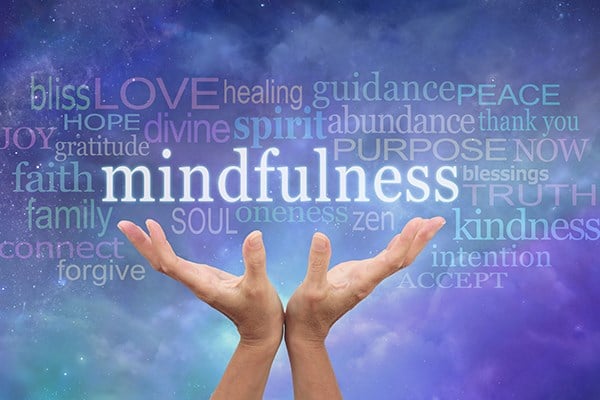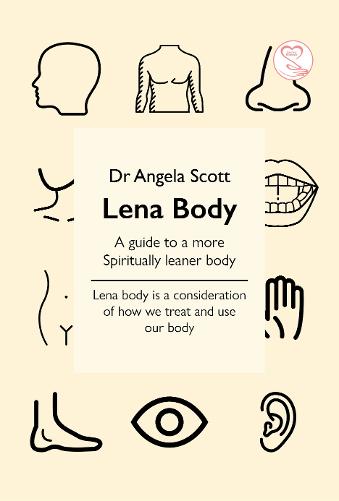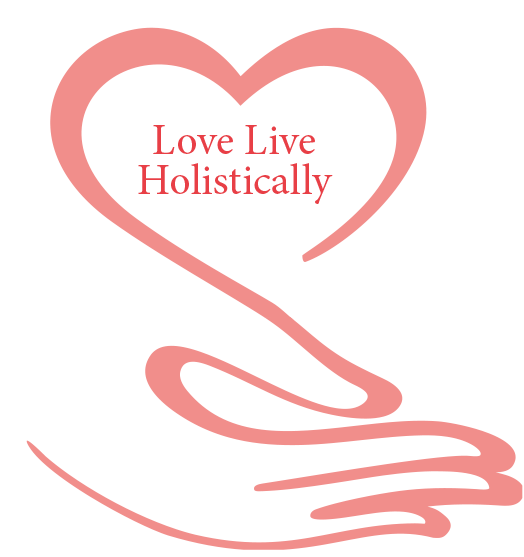Meditative
29th September 2020

This book of the law shall not depart out of thy mouth; but thou shalt meditate therein day and night, that thou mayest observe to do according to all that is written therein: for then thou shalt make thy way prosperous, and then thou shalt have good success. Joshua 1:8 KJV
The last of the Buddhist three fold training I will discuss in this sequence of talks, is Meditative. This training consist of Right Effort, Right Mindfulness and Right Concentration.
Right Effort is as it states, displaying the right effort. One should make a conscious effort in order to follow the right path in life.
Right Mindfulness – We have spoken about being mindful in everything we do and say. Mindfulness is as it states, being aware of all actions we take and not take.
Right Concentration – Is both Right Effort and Right Mindfulness. When one uses effort and mindfulness they are said to be concentrating. One is using Right Concentration.
This chapter will encompass my three subtitles Life, Situation and Yourself. We are all aware that if we intend to live a productive life, be of service to our family and friends, our community, even to the world, we need to use effort. One cannot simply sit on the couch and expect to be productive, we have to do something in-order to use Right Effort. The use of Right effort must not be too lax or too effortful. Your effort should be finely tuned. What do I mean? Whatever you do in life, your interactions, your livelihood, your relaxing, your everything, should be done using right effort. Not the right amount of effort, but the Right effort. Take the time to consider what your intentions are for the action you are about to take....Take the time to consider what you are about to say and how you will be received by the person or persons in ear shot. Finely tuned action works for you in the long run!. Right effort allows you time to consider what you do and why you do it. For example, why would you work 75 hours a week and miss out on being with your family? Before you start sending me emails. I understand that needs must! For you and your family to have a better quality of life in the long run, you may want to work 75 hours a week. This is using right effort because you are doing the work for the right reasons. The person with that mindset may start their working week feeling tried, and missing their family, but realise that it is a means to a positive end. The person who feels or should I say is of the mindset that they have no other choice but to work 75 hours a week, as they will not be able to pay the bills, they may get evicted, their marriage may fall apart is working those 75 hours for the wrong reasons, thus not displaying right effort.
We are all aware that if we intend to live a productive life, be of service to our family and friends, our community, even to the world, we need to use effort. One cannot simply sit on the couch and expect to be productive, we have to do something in-order to use Right Effort. The use of Right effort must not be too lax or too effortful. Your effort should be finely tuned. What do I mean? Whatever you do in life, your interactions, your livelihood, your relaxing, your everything, should be done using right effort. Not the right amount of effort, but the Right effort. Take the time to consider what your intentions are for the action you are about to take....Take the time to consider what you are about to say and how you will be received by the person or persons in ear shot. Finely tuned action works for you in the long run!. Right effort allows you time to consider what you do and why you do it. For example, why would you work 75 hours a week and miss out on being with your family? Before you start sending me emails. I understand that needs must! For you and your family to have a better quality of life in the long run, you may want to work 75 hours a week. This is using right effort because you are doing the work for the right reasons. The person with that mindset may start their working week feeling tried, and missing their family, but realise that it is a means to a positive end. The person who feels or should I say is of the mindset that they have no other choice but to work 75 hours a week, as they will not be able to pay the bills, they may get evicted, their marriage may fall apart is working those 75 hours for the wrong reasons, thus not displaying right effort.
Let's consider the two mindsets mentioned above, we shall give them names. James is of the first mindset, he is working 75 hours a week, leaving his family on Monday morning and returning on Friday night. James wished he worked closer, but understands that this is something that will enable his family to have the necessities and some nicer things in the long run. Plus he only intends to do this work for two years!
Jenny on the other hand, works 75 hours a week. She comes home every night after doing 12 hour shifts five days a week, plus a second job on the weekends. Jenny has a family and is of the mindset that she has do these two jobs, as she has no other way of looking after her family. Jenny's mood is always dull and appears tired most days, she also has no idea how long she will have to work at this punishing pace or whether her health will allow it.
We can see that Jenny has her hands full and you may feel that James has a better job than Jenny. That is further from the truth. James's job is hard physical labour, which he completes every day for 15 hours. Jenny's works in a call centre taking calls from people who want insurance, don't want insurance or want to claim on their insurance. On the weekends, Jenny works at the local cinema taking bookings or as a cashier in the booth. Both jobs, for me would be tiresome! But one of these two people have a positive mindset, their interactions with others, you may guess, is pleasant. James does not turn off his reason for working 75 hours a week when talking to his peers or his family members. Jenny does not turn off her reason for 'having' to do what she does, when she speaks to customer's on the phone (she has been reprimanded for being 'rude' several times) Jenny does not turn off the reason she works 75 hours a week when she interacts with her partner or child! So my questions to you again, is, why would you do something that will cause you pain in the long run? Right effort (not too lax or too effortful) will keep you in the right mindset. Right effort, when made a conscious part of our lives will encourage good qualities and be of benefit to all our interactions. It will discourage or reduce bad qualities that could block or interfere with the process of living a productive life.
Going to work is just one example of Right effort. Right effort should be used in every aspect of our lives, one should make a conscious effort to be caring, kind, non-judgemental, friendly, generous, and considerate to name a few. Right effort means thinking before acting and attempting to make the Right choice whilst being mindful.
Right Mindfulness has been discussed in my book 'The Exhorted Soul' - Chapter 12. I asked readers to consider where their feet took them, who they took tea with, what they ate and where the food came from. I considered our private spaces and whether some of our relationships served or hindered us. Our hands where brought into question and I asked readers to consider what they put their hands to or had a hand in! I looked at the heart and health and asked about living a healthy life. Eyes, ears and tongue were also discussed. Being mindful of every aspect of our lives make for a better person.
Being aware of what we do or say enables us to do or say the right thing every time we are called to interact in any way.
My list above is by no means exhausted. Ones feelings is to be considered when thinking of being mindful. Being angry for example, should be investigated with mindfulness, consider why you feel the way you do, how it is making you feel. Could those feelings have a bearing on your intended actions and future thoughts? I must admit when I am angry my thoughts are not always loving. I believe I 'Sin' some times, as my thoughts go some distance away from the loving, caring person I portray. In being mindful of your thoughts, one is able to quickly bring themselves back to present, the here and now, instead of somewhere in the future with thoughts of 'when I see that person I'm going to …...' or the past with 'I should have said or done this or done that' Being mindful keeps you in the NOW and allows you to remain calm, acknowledge what and how you are feeling. I didn't say this was going to be easy but the more you practice this mindful way of thinking, the quicker you will calm down after something or someone has evoked anger in you.
Being Mindful of how you feel, investigating what has made you feel the way you do, should to be used for most feelings: Such as Jealousy, resentment, repulsion, happiness, joy, love etc.
As human beings, negative feelings come and go, if they are acknowledged and investigated we will begin to learn how to entertain them less. Attempting to hold on to these feelings may cause hindrance, dull feelings, upset, and the myriad of body aliments associated with negative feelings, headaches, heart burn, acne, stomach ache, alopecia, the Cancer in you wakes up! Allow negative feelings to come and let them go, why would you hold on to something that is hot! Acknowledge that you have just caught a hot stone, then drop it. It does not serve you no good to watch it burn through your skin and into your bones. This is what you do when you 'hold a grudge' 'hold someone in contempt' withhold kindness, praise or forgiveness. Can you see that holding on to negative thoughts do more harm to you, than the person or thing it is directed at? We can not avoid feelings of negativity, after all it is the people we interact with that evoke these feelings! Is there anyone in your life that fits that bill? Remember they have to be close enough in-order to affect or should I say infect you with their negativity. Is that person your partner? A family member? Your children? Your 'C' friend! Your boss or a co-worker? You know actually who I am talking about. You need to do something about their presence in your life. I will not use this chapter to give you step by step instructions on how you are to distance yourself from them, but you must start TODAY in devising a plan to change the amount of negativity that thing or person infects you with.
Here are some examples for each of the likely negative suspects in your life:-
Shelly who calls you with her 'woe me conversations'. Every-time you answer her calls, you hear, in intricate details how something or somebody has affected her, made her do this or do that, or stopped her from doing this or that.
Two things you can do here: Stop taking Shelly's calls or tell Shelly that you want to hear something positive from her each time she calls you.
For your partner or children......Change you! They will change in response to your acceptance or non acceptance behaviour to their acts of negativity. You will need to become more positive, don't indulge in negative conversations, use rebuttal techniques to their negative ways or speech....(Disclaimer here- Depending on your situation, seek professional help, no one should stay and try and 'fix' an abusive relationship)
Your Boss or Co-worker
Change you! Change jobs. (easy for me to say, I know) Have you noticed that certain jokes or unwanted behaviours can not be repeated or displayed in front of certain co-workers, as they would not be entertained by them? That co-worker has subtly made you aware of their ethics and morals, they have taught you what is acceptable and what is not acceptable in their presence. Are you too afraid to do the same? Is listening to gossip or rude jokes keeping you in the 'in crowd' and is it worth it in the long run?
Practice and Concentration will allow you to grow pass anyone who has made negativity a part of their lives as they infect others with their affliction. As mentioned above we are human and negative thoughts will arise from time to time. If these feelings are not your natural habitat, you may feel dull or down. You are to acknowledge the feelings but begin steps to renew yourself. Relax if you need to relax, sleep is you need to sleep. Be mindful of what your body is telling you. John M. de Castro, Ph.D. In his article The Noble Eightfold Path: Right Effort – states that 'restlessness and worry are indicators of straying from attention to the present moment and wanting things to be different than they are, ruminating about the past, or fantasizing about the future. These states can also be useful as signposts and guides leading back to the present moment. “Right Effort” is to use these states to assist in maintaining energy, staying with mindfulness, and concentrating. The more they are used in this way the easier it gets to sense straying from the path and the sooner the return can happen'.
As we see, one should stay with mindfulness and concentrating. Concentration, can be confused with being mindful. We are to be aware of what we do and say, we are to be mindful of our environment and our feelings. But to concentrate takes a little more effort (right effort). I trust we agree that we should acknowledge all feelings. In order to cultivate and use good or right feelings, we need to concentrate on what feels good or right. Imagine a good feeling, what does it conquer up for you? Do you imagine yourself laying on a beach with the warm sun shining down on you? Perhaps you have thoughts of eating your favourite meal or laying in a freshly made bed with soft pillars and sheets. Whatever it is, concentrate on it for a moment...Many would call this meditation.
 The meditative training, according to the Buddhist training is also called Right Concentration. Do you meditate? Many believe that meditation has you crossed legged, thumb and index finger touching, eyes closed and chanting 'Om Mani Padme Hum'. Meditating for me is being aware of my very being. That is, while I am walking, I am being aware of the breeze, the sights, the sounds around me. This can last 2 minutes as I am often walking to the shops and I flip back into thinking about what I'm going to buy, I wonder where I put the shopping list? Is it in easy reach when I get to the shops. Where's my glasses, oh that's a nice car. I often get a sense of serenity while reading and editing my written work. I am often in my garden or sitting on the coach. I read, I edit and then listen to the silence or the bird chirping in the tress. This feeling is not experienced while doing any other activity. I love this feeling of being. I feel that when I am in that space, I am meditating. It only lasts until I finish reading or when my phone rings or sends me a notification.
The meditative training, according to the Buddhist training is also called Right Concentration. Do you meditate? Many believe that meditation has you crossed legged, thumb and index finger touching, eyes closed and chanting 'Om Mani Padme Hum'. Meditating for me is being aware of my very being. That is, while I am walking, I am being aware of the breeze, the sights, the sounds around me. This can last 2 minutes as I am often walking to the shops and I flip back into thinking about what I'm going to buy, I wonder where I put the shopping list? Is it in easy reach when I get to the shops. Where's my glasses, oh that's a nice car. I often get a sense of serenity while reading and editing my written work. I am often in my garden or sitting on the coach. I read, I edit and then listen to the silence or the bird chirping in the tress. This feeling is not experienced while doing any other activity. I love this feeling of being. I feel that when I am in that space, I am meditating. It only lasts until I finish reading or when my phone rings or sends me a notification.
There are a myriad of things that we think about whilst doing other things. Take any activity you routinely do, what do you think about while you are doing it? Meditating is being aware and being calm. Thich Nhat Hanh, in an interview with Oprah, when asked 'how do you meditate', he responded 'I am meditating right now, while talking to you'! With practice you too will 'be calm' in any situation, you will be 'meditating' most of the time until you have the ability to display equanimity (A calmness, especially in difficult situations).
The more you practice being aware or make use of your ability to concentrate, the calmer you become when dealing with your life, people and situations. I am not about to say that nothing phases me or that you will not ever be phased, but it may appear that way to people around you should you practice 'Concentration' more often. You will begin to reach a stage of equanimity People around you will begin to comment on how calm you are, calmness will begin to exude from you!
Conclusion
Right Effort should not be selective concentration, that is too lax or too effortful, but finely tuned. In every situation consider using the right effort. Right effort allows you time to ask yourself, 'Should I be doing this? Will the outcome benefit me or others? Should I be spending time listening to this gossip? Should I be in a job that makes me sad, when I think of going there? Being mindful of all aspects of our lives makes for a better person. Being aware or mindful of what we do or say allows us the time to think before taking any action or interact in anyway. But what do you do when you feel down or upset? Being mindful is helpful here too. One should acknowledge and investigate the feeling. Consider who or where it originated from, who or what is it directed at? Then consider right effort, does it serve me any purpose to hold on to that feeling of resentment, jealousy, inferiority, joy, love, peace etc. Your body will let you know which feelings it prefer. No one is suggesting that feelings are to be brushed aside, remember you should acknowledge the feelings but also learn from the feeling. It may be telling you that listening to John on the phone for 54 minutes and 23 seconds, where he tells you all that is wrong with his life, your life and the world is not a good idea or use of your efforts! This is something that will have to be practised overtime. Concentration or being aware is your best ally. Concentration will allow you the time to consider your options. If you let it, concentration will come with peaceful thoughts and good feelings. Right concentration brings with it a calmer you, a calmer you brings you time to make the best choice given the situation. Whilst being mindful of how you feel, how the other person concerned may feel in response to your actions or reaction.
Using the Eightfold Path as the foundation of your life, will have you seeing the world through glasses others may find fuzzy. You will be aware of your intuition, how you view your world and your place in it. What you say or don't say. The right action to take, which includes the livelihood you choose to take. Living mindful of others and yourself can only be the right way to go.
For further Resources on Meditation:
https://www.nerdfitness.com/blog/meditation-building-the-superpower-you-didnt-even-know-you-had/
If you have enjoyed my blog and would like to contribute to its continued help and guidance to others, please donate. All donations gratefully received and appreciated.
Check Out For My New Book
SIGN UP FOR AN EMAIL, LETTING YOU KNOW WHEN THE NEXT BLOG IS OUT.




